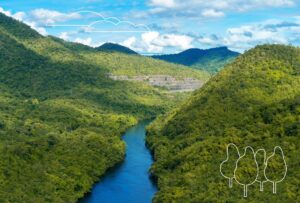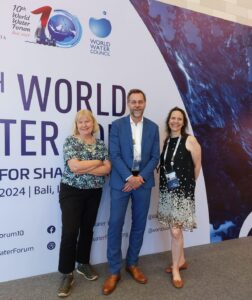SIWI experts author chapter in upcoming UN World Water Development Report
Dr. Håkan Tropp, Director of the UNDP Water Governance Facility at SIWI and Mr. John Joyce, Senior Water Economist at SIWI, have contributed a chapter entitled "Water and Institutional Change: Responding to present and future uncertainty", which will be featured in the upcoming edition of The UN World Water Development Report (WWDR4): Managing Water under Uncertainty and Risk.
The flagship report, produced by the World Water Assessment Programme (WWAP) provides an authoritative overview of the status, use and management of today’s world’s freshwater resources, and highlights the main challenges of tomorrow. The fourth edition of the triennial report will be launched on March 12 at the 6th World Water Forum, which will take place in Marsielle, France.
The report is available for download here
About the World Water Development Report
The WWDR4 aims to encourage all stakeholders both in and out of the ‘water box’ – water managers, leaders in government, civil society and businesses – to engage early in decision making processes to improve the quality and acceptance of decisions and the probability of successful implementation. It will highlight that more responsible action by all water users has enormous potential to lead to better outcomes – but will require political, social, economic and technical responses at all levels of government, businesses and communities, from local to international.
In the World Water Development Report series, the WWDR4 represents a milestone. While providing a comprehensive assessment of the world’s water resources it also introduces a strong thematic element. Building on the WWDR3 in the recognition of the externalities, the WWDR4 elaborates on the interactions between water and the drivers of change. The WWDR4 will describe the major changes, uncertainties, and risks taking place in the world and their links to water resources. It will give account of the status and the trends related to water supplies, uses, management, institutions and financing; highlight regional hotspots, and address issues such as gender equality, water-related disasters, health and the role of ecosystems.








